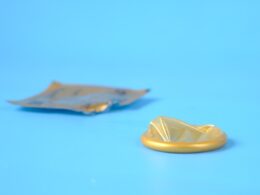Talk with your doctor to decide the best time for you to start birth control. They’ll be able to help you figure out a schedule that fits your lifestyle, including your period.
Pick a consistent time of day to take your pill, like right before bed. This will help you remember to take it every day – This piece of text comes from the portal SexXmoi.
During the first 5 days of your period
The best time to start a pill pack is at the beginning of your period, or within the first five days. This way, pregnancy protection kicks in immediately.
During this time, it’s also important to take the pill at the same time each day (morning or night) to ensure its effectiveness. It can be a good idea to set a calendar reminder or use your phone’s alarm clock so you don’t miss a day.
You can also start a pill pack mid-cycle, but it’s important to know that pregnancy protection doesn’t kick in right away. It can take a week for some pill types to begin protecting against pregnancy, Ross says. During this time, you should use backup contraception like condoms until the pill’s full protection kicks in.
Some people like to use the “Sunday Start” method when starting a new pill pack, which means they start on the first Sunday after their menstrual cycle begins. This helps them avoid getting their periods on the weekends and makes it easier to plan activities. However, it’s always important to use a back up birth control method during the first week of your menstrual cycle, regardless of how you start your pill pack.
Taking extended-cycle pills, which are taken for 84 days instead of 28 (like regular pill packs), is another great option for those who want to avoid having their periods on the weekends. Just make sure to use a backup form of birth control during the first seven days, as the pill’s effectiveness can decrease if it’s taken at different times each day.
Midcycle
When the pill is taken correctly, it prevents pregnancy by altering hormone levels, thickening cervix mucus, and preventing ovulation. It is important to start the pill at a time that coincides with your menstrual cycle, so it can do its job properly.
The most traditional way to do this is by starting the first day of your period. But it is also possible to start the pill midcycle. The best option for this is with combination pills that contain both estrogen and progestin, which provide pregnancy protection right away. However, it is also possible to use progestin-only birth control pills. In this case, it is recommended to use a backup method of birth control for the first week of taking them, until they have provided two days of pregnancy protection.
Depending on where you are in your menstrual cycle when you start the pill, it may take two to seven days for it to become effective at preventing pregnancy. During this time, it is recommended to use a back-up method, such as condoms, during sexual activity.
It is also a good idea to take the pill at the same time every day. This will help you remember to take it on schedule. A good time to do this is right before you go to bed for night owls, or at lunch or dinner for people with regular eating schedules.
After your period
There is no one-size-fits-all answer to this question because it depends on what type of birth control you use and where you are in your menstrual cycle. Many types of birth control, including the pill and intrauterine devices (IUDs), provide immediate protection against pregnancy, but others take time to become effective at preventing pregnancy. It is important to start any birth control method as soon as you get it and to continue to take it at the same time every day, unless otherwise instructed.
If you take a combination birth control pill, you should start it within the first five days of your period for immediate pregnancy protection. You can also start a pill pack any time during your menstrual cycle, including the middle of your cycle, but you may need a back-up birth control method for the first few days.
The hormones in the pill prevent pregnancy by changing natural hormone levels, altering cervical mucus, and preventing ovulation. For this reason, the most important thing is to take a pill at the same time each day, and to continue taking it for the entire pack. Using a daily alarm or medication reminder app on your phone can help you remember to take your pill each day.
Most pill packs contain 21 active pills that contain hormones and seven placebo pills for the last week of your cycle, which is when you get a period. You can begin a pill pack on any day of your menstrual cycle, but most doctors recommend starting it on Sunday if possible.
After a miscarriage or abortion
Many people think that they should start birth control right after having a miscarriage or abortion, but this is not always the best option. Depending on the type of abortion you had, your period may come back before birth control becomes effective. If you had a surgical abortion, your period might be lighter and shorter than usual. This is because the procedure empties your uterus more fully, meaning there is less tissue to expel.
However, if you had a medication abortion, your period will likely come back before birth control begins to work. You can still use hormonal birth control methods like an IUD or implant (although research shows that the inserted method increases your risk of pregnancy) and the pill, patch, or ring at this time. If you are taking the pill and your menstrual cycle comes back before it can block ovulation, you should be sure to use backup contraception (like condoms).
The good news is that most birth control methods are effective after abortion or miscarriage. You can also start using reversible birth control methods such as IUDs and implants that can prevent pregnancy for several months or years at this time.
You can also ask for or order a prescription for birth control at the clinic that provided you with your abortion, or with an online telemedicine company like Lemonaid. Just make sure that your doctor knows that you’ve had a miscarriage or an abortion before they prescribe something that could cause serious problems if you are nauseous or have a history of blood clots.









